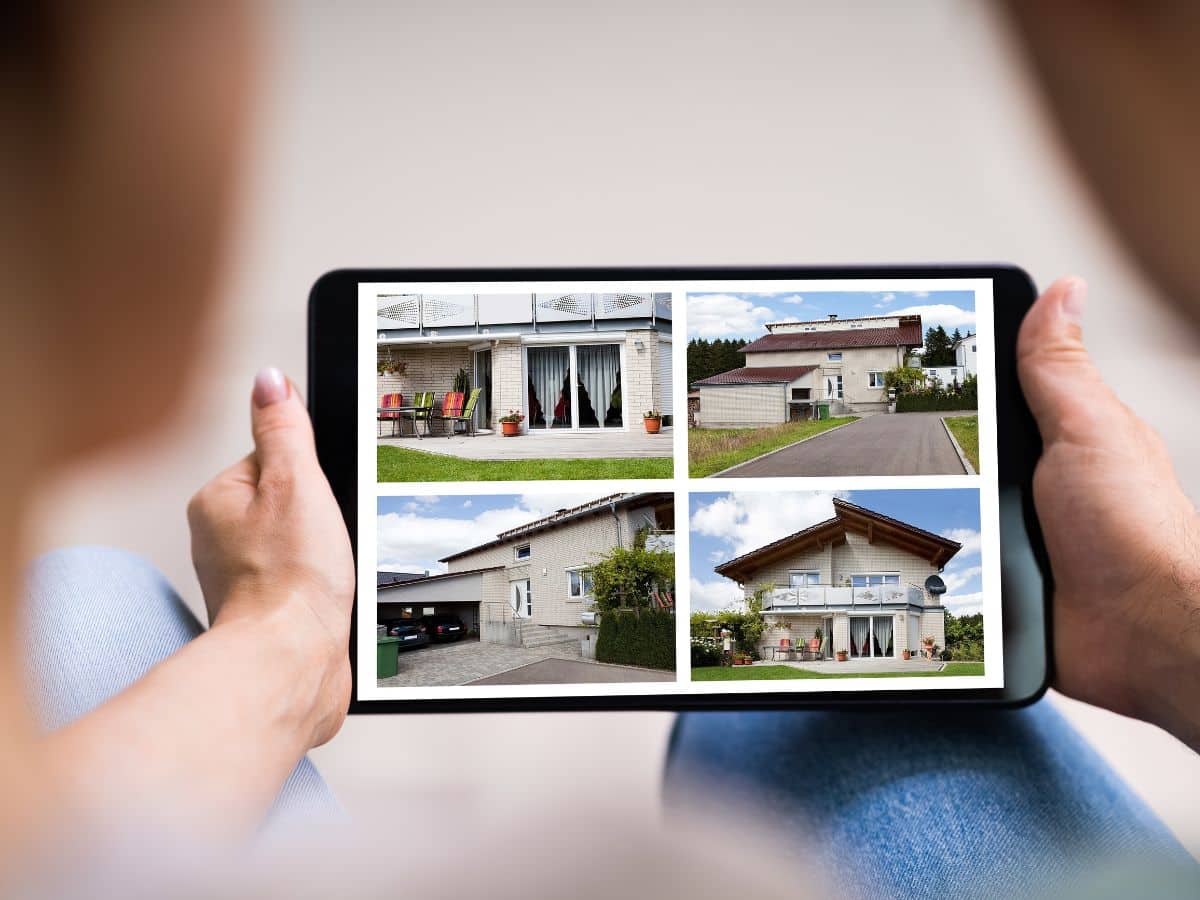The world is full of technological developments and economic transformations, and the real estate industry has a vital and growing role in promoting financial stability and achieving sustainable profits. From large institutions to individual investors, everyone is looking for outstanding opportunities for real estate financing and efficient property management. With the integration of technology into all aspects of our lives, new technologies in the field of property management are emerging as powerful tools that enable achieving maximum returns and providing outstanding customer experiences. In this accelerating digital age, understanding how to use modern property management technologies is essential to staying ahead of the competition and achieving success in the evolving real estate market.
In this article, we will explore a range of leading technologies that play a vital role in improving property management processes and enhancing returns. We will explore how these innovative technologies can change the concept of real estate investment and make the property management experience one full of opportunities and continuous improvement. Let us explore the world of real estate technology together and discover the unique and innovative opportunities it can offer us.
Property and real estate management systems (PMS):
In the era of digitization and technological development, property management systems have become one of the most important tools used by real estate managers to ensure the effectiveness of managing their properties. These systems are centralized and comprehensive, allowing users to manage all aspects of real estate with ease and effectiveness.
Rentals and Management: Rental management is one of the most important aspects of real estate management operations, and PMS systems provide powerful tools to effectively manage rental operations, including tracking contracts, payment schedules, and annual rent increases.
Maintenance management: PMS systems help organize and follow up on property maintenance operations in an advanced manner. This ensures the preservation of the property’s value and the comfort of tenants.
Accounting Management: Property management systems provide a comprehensive accounting interface that helps track revenues and expenses and generate financial reports accurately and efficiently.
Marketing and Promotion: PMS systems provide advanced marketing tools that help promote real estate and increase subscription and rental rates, which enhances real estate revenues.
Lastly, Data analysis and decision making: PMS systems rely on advanced graphical analysis techniques to generate the reports and analyzes necessary to make strategic decisions, and guide investment and development operations based on accurate data.
Digital Marketing:
Real estate marketing in the digital age has played a major role in achieving success and increasing demand in the field of real estate management. Here are some points that highlight the importance of digital marketing in the real estate industry:
Firstly, Wider Reach: Digital marketing allows properties to reach a wider audience through the internet and social media. This increases the chances of finding potential tenants or buyers.
Cost Savings: Compared to traditional marketing methods such as print or television advertising, digital marketing can be more effective and cost less, especially when using targeted advertising.
Better engagement: Through digital marketing, potential tenants or buyers can interact directly with ads or offers. Which increases the chances of conversion into actual rental or sale transactions.
Measuring success accurately: The results of digital marketing campaigns can be measured accurately through the use of analysis and statistics tools. This allows for improving strategies and identifying areas that need improvement.
Lastly, Brand enhancement: By creating attractive and distinctive content on social media platforms and websites, real estate companies can build strong relationships with potential customers and enhance their identity and reputation in the market.
Artificial intelligence and data analysis in real estate management:
Artificial intelligence technology and data analysis play an important role in improving the performance of the real estate management sector and increasing investment opportunities. Here’s how these technologies help maximize revenue and generate profits:
Firstly, Market Forecast: Artificial intelligence and data analysis are used to analyze market trends and forecast demand for specific types of properties in specific areas, which helps investors make informed investment decisions.
Investment Analysis: By analyzing market and financial data, AI technologies can analyze the performance of potential real estate investments and provide guidance on which properties are likely to achieve high returns.
Improving strategic decisions: Using historical data and market analytics, AI technologies can provide valuable insights into real estate performance and market trends, making it easier to make strategic decisions based on a reliable foundation.
Finally, improving user experience: Data analytics and AI technologies can analyze user behaviors and provide personalized and enhanced experiences for potential tenants and buyers. Which strengthens the connection between them and increases the opportunities for sale or rent.
Read about the analysis of economic factors and their impact on

Blockchain and smart contracts:
Blockchain technologies and smart contracts are revolutionizing the world of real estate, offering new opportunities in order to improve operations and facilitate transactions. Here are some of the ways these technologies are contributing to the development of the real estate sector:
Property Registration and Contracts: Blockchain technology can be used to securely and tamper-evidently record real estate ownership. This reduces the risks of forgery and manipulation of information. Smart contracts can also be used to implement real estate contracts automatically and instantly, without the need for an intermediary.
Facilitating rental and sales processes: Blockchain and smart contracts can simplify rental and sales processes by implementing them directly between the landlord and the tenant or buyer. This reduces costs and time spent on administrative processes.
Increased transparency and security: Blockchain and smart contract technologies provide a distributed and encrypted data structure. This increases the transparency of operations and ensures the security of information and transactions.
Reducing costs and intermediaries: Thanks to encryption and automated execution, reliance on intermediaries and agents in the rental and sales processes can be reduced. Which reduces costs and increases the effectiveness of operations.
Lastly, Accelerating transfers: Smart contracts can execute real estate transfers instantly and securely, reducing bureaucracy and delays in transfers and speeding up workflow.
Virtual Reality (VR) technology and virtual tours:
Virtual Reality (VR) technology and virtual tours provide an interactive and realistic experience for exploring properties, which facilitates the marketing and management process and increases their attractiveness to potential tenants and buyers. Here are some of the benefits these technologies offer:
Firstly, browse real estate realistically: The use of virtual reality technology gives users the opportunity to explore real estate realistically, where they can walk around places and spaces accurately and fully capture the details.
Saving time and effort: Instead of taking tours of physical locations, users can use virtual tours to view properties from anywhere and at any time that suits them, which saves time and effort.
Expand your target audience: Virtual tours can reach a broader audience, including international investors and buyers unable to visit physical locations.
Increasing sales and rental opportunities: By providing a realistic experience for users, virtual reality technology can increase sales and rental opportunities by attracting more interested people and motivating them in order to make quick decisions.
lastly, providing an exceptional customer experience: The effective use of virtual reality technology can contribute to providing an exceptional customer experience. That enhances the brand’s reputation and leads to increased customer loyalty and satisfaction.
Summary
Are you wondering how you could benefit from our article on “Modern Real Estate Management Technologies: Distinct Opportunities to Maximize Returns and Achieve Profits”? Here’s a quick summary of the technologies covered:
The review covered several modern technologies in property management, such as property management systems (PMS), digital marketing, artificial intelligence and data analysis, blockchain and smart contracts, and virtual reality technology with virtual tours. Additionally, these technologies demonstrate how real estate companies can achieve efficiencies, improve customer experiences, and increase revenues.
Moreover, by adopting these technologies, real estate companies can improve management and marketing processes, and analyze data effectively. Which helps it make strategic decisions based on accurate data and expectations. These technologies also enable improving the experience of tenants and buyers and increasing sales and rental opportunities.
Read also about the 6 most important tips for the success of startups in the field of real estate management




